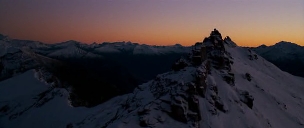 This was one of those movies, purposely not screened for the critics in advance of its release last year. The movie industry is a vain, attention-hungry animal, and it never shies from the media spotlight without good reason. Occasionally a movie comes along so hobbled, so hackneyed, screening it for criticism becomes an open solicitation for capital-T, Trouble.
This was one of those movies, purposely not screened for the critics in advance of its release last year. The movie industry is a vain, attention-hungry animal, and it never shies from the media spotlight without good reason. Occasionally a movie comes along so hobbled, so hackneyed, screening it for criticism becomes an open solicitation for capital-T, Trouble.
10,000 B.C. so desperately wants to join the ranks of films like One Million Years B.C. and Prehistoric Women it forgets why such movies sucked, committing many of the same mistakes. Watching it is the cinematic equivalent of sitting trapped behind two-way glass as a retarded child stumbles through a room full of open bear traps. One may shout, “No!” all one wants, to no avail. One will just loose one’s voice. {More}

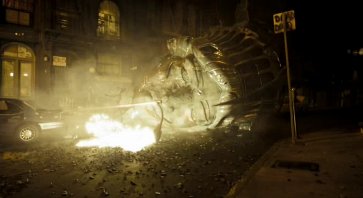 I feel remiss letting the one big budget, theatrically released daikaiju movie of 2008 pass by without comment. I have no illusions about the utility of these comments, however. Every fan on the Internet has already seen the film and come down fo’ it or again’ it. Instead, I plan to cut a path straight through the ambivalent center. My hope is this vantage point with throw Cloverfield‘s good and bad sides into stark relief allowing us to have fun. This is, after all, supposed to be entertainment. Not the Second Coming of Godzilla. Not the Third Coming of the Blair Witch (God help us if it is). Cloverfield is neither of those things, in spite (or perhaps because) of the fact that it was probably sold as such.
I feel remiss letting the one big budget, theatrically released daikaiju movie of 2008 pass by without comment. I have no illusions about the utility of these comments, however. Every fan on the Internet has already seen the film and come down fo’ it or again’ it. Instead, I plan to cut a path straight through the ambivalent center. My hope is this vantage point with throw Cloverfield‘s good and bad sides into stark relief allowing us to have fun. This is, after all, supposed to be entertainment. Not the Second Coming of Godzilla. Not the Third Coming of the Blair Witch (God help us if it is). Cloverfield is neither of those things, in spite (or perhaps because) of the fact that it was probably sold as such.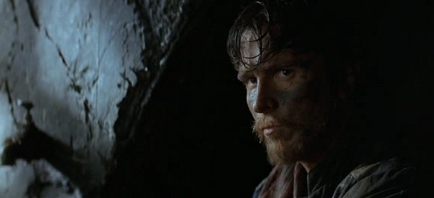
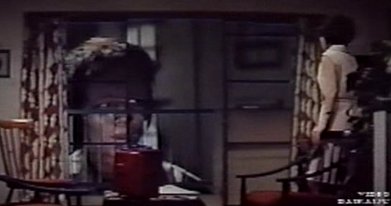 In 1966 chaos and upheaval swept the world. A year after the Gulf of Tonkin “incident”, the United States of America was already well on its way to dropping its first million tons of bombs on Vietnam, Cambodia and Laos, despite a recession at home. The Soviet Union found itself smack in the middle of what’s now called the Brezhnev Stagnation, with social and political reform firmly placed back on the shelf marked “Bourgeoisie Pipe Dreams.” Between the two powers, Japan soldiered on, dreaming of its monsters.
In 1966 chaos and upheaval swept the world. A year after the Gulf of Tonkin “incident”, the United States of America was already well on its way to dropping its first million tons of bombs on Vietnam, Cambodia and Laos, despite a recession at home. The Soviet Union found itself smack in the middle of what’s now called the Brezhnev Stagnation, with social and political reform firmly placed back on the shelf marked “Bourgeoisie Pipe Dreams.” Between the two powers, Japan soldiered on, dreaming of its monsters.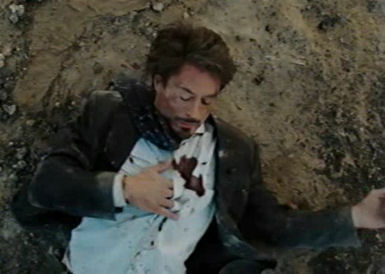 In another unexpectedly pleasant surprise, Iron Man turned out to be perhaps the strongest of this passing summer’s superhero movies. I say “perhaps” because, while it lacks The Dark Knight‘s length and
In another unexpectedly pleasant surprise, Iron Man turned out to be perhaps the strongest of this passing summer’s superhero movies. I say “perhaps” because, while it lacks The Dark Knight‘s length and  I’ll say this: it was better than I expected…if only because my expectations were so low. This sequel was long in coming, and all its flaws flow from the fact that no one (apart from me, it seems) enjoyed its predecessor.
I’ll say this: it was better than I expected…if only because my expectations were so low. This sequel was long in coming, and all its flaws flow from the fact that no one (apart from me, it seems) enjoyed its predecessor.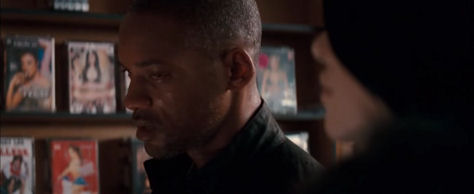
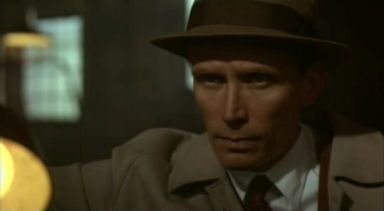 David Cronenberg’s Naked Lunch is not William S. Burroughs’ Naked Lunch and god only knows what the old gentlemen junkie made of this grotesque—where reptiles spill glycerin gel from the hollow tips of their vestigial head-tendrils—where fact and fiction recombine like RNA mixed in some unholy juice machine of a Canadian’s mind. Hard to find a mind so filled with the temptations of the flesh. Flesh stretches and squelches and screams through the smoke nights of Vancouver lights in the sky pink shale colors of rail and light and tonight we find David Cronenberg’s Naked Lunch. No more feeling than a crab’s eye on a stalk.
David Cronenberg’s Naked Lunch is not William S. Burroughs’ Naked Lunch and god only knows what the old gentlemen junkie made of this grotesque—where reptiles spill glycerin gel from the hollow tips of their vestigial head-tendrils—where fact and fiction recombine like RNA mixed in some unholy juice machine of a Canadian’s mind. Hard to find a mind so filled with the temptations of the flesh. Flesh stretches and squelches and screams through the smoke nights of Vancouver lights in the sky pink shale colors of rail and light and tonight we find David Cronenberg’s Naked Lunch. No more feeling than a crab’s eye on a stalk.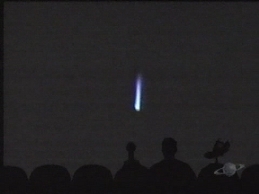 Too much rich food is bad for the diet. Too much speed is bad for the mind. Too many modern, high-fructose, Hollywood movies are bad for the movie reviewer. They encourage him to think, to wonder, just what the hell am I doing this for? That line of thought rolls right down a slippery slope, and we all know what else rolls downhill beside it.
Too much rich food is bad for the diet. Too much speed is bad for the mind. Too many modern, high-fructose, Hollywood movies are bad for the movie reviewer. They encourage him to think, to wonder, just what the hell am I doing this for? That line of thought rolls right down a slippery slope, and we all know what else rolls downhill beside it.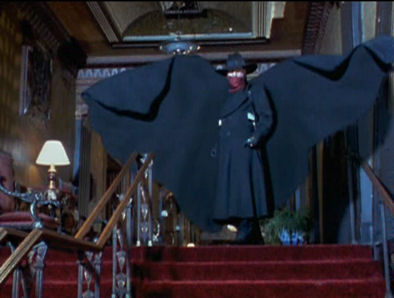 There are currents in the past, deep eddies in the sediment of time. They erode channels through their courses and join together to form deeper cuts, which in turn formed the modern world and all that drowns us within it. This is true for the modern concept of the superhero as much as anything else. Examining the headwaters of this genre requires us to go back “to the thrilling days of yesteryear,” as the Lone Ranger’s radio program used to say. And there are few yesteryear’s as thrilling as The Shadow‘s
There are currents in the past, deep eddies in the sediment of time. They erode channels through their courses and join together to form deeper cuts, which in turn formed the modern world and all that drowns us within it. This is true for the modern concept of the superhero as much as anything else. Examining the headwaters of this genre requires us to go back “to the thrilling days of yesteryear,” as the Lone Ranger’s radio program used to say. And there are few yesteryear’s as thrilling as The Shadow‘s